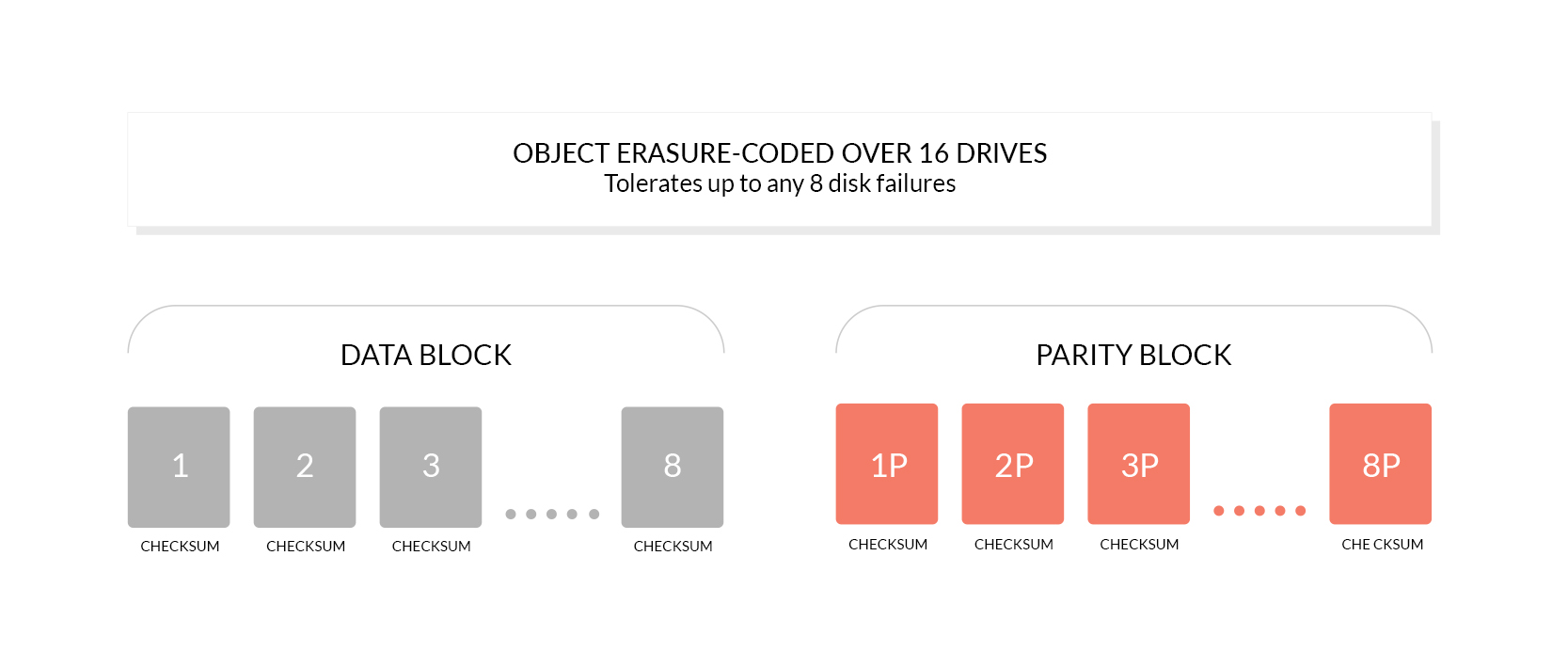- Sort Score
- Result 10 results
- Languages All
Results 451 - 460 of 579 for Unknown (0.04 sec)
-
cmd/storage-errors.go
errFaultyDisk, errFaultyRemoteDisk, } var baseIgnoredErrs = baseErrs // Is a one place function which converts all os.PathError // into a more FS object layer friendly form, converts // known errors into their typed form for top level // interpretation. func osErrToFileErr(err error) error { if err == nil { return nil } if osIsNotExist(err) { return errFileNotFound }
Registered: Sun Sep 07 19:28:11 UTC 2025 - Last Modified: Thu Apr 04 12:04:40 UTC 2024 - 6.4K bytes - Viewed (0) -
guava/src/com/google/common/collect/ComparisonChain.java
* {@code Comparator} doesn't: it evaluates all the parameters of all the {@code .compare} calls, * even when the result of the comparison is already known from previous {@code .compare} calls. * That can be expensive. * * @author Mark Davis * @author Kevin Bourrillion * @since 2.0 */ @GwtCompatible public abstract class ComparisonChain {Registered: Fri Sep 05 12:43:10 UTC 2025 - Last Modified: Mon Mar 17 20:26:29 UTC 2025 - 11.1K bytes - Viewed (0) -
src/main/java/jcifs/smb1/smb1/SmbTree.java
} } connectionState = 1; // trying ... try { /* The hostname to use in the path is only known for * sure if the NetBIOS session has been successfully * established. */ session.transport.connect();Registered: Sun Sep 07 00:10:21 UTC 2025 - Last Modified: Thu Aug 14 07:14:38 UTC 2025 - 8.1K bytes - Viewed (0) -
docs/erasure/README.md
 ## What is Bit Rot protection? Bit Rot, also known as data rot or silent data corruption is a data loss issue faced by disk drives today. Data on the drive may silently get corrupted without signaling an error has occurred, making bit rot more dangerous than a permanent hard drive failure.
Registered: Sun Sep 07 19:28:11 UTC 2025 - Last Modified: Tue Aug 12 18:20:36 UTC 2025 - 4.2K bytes - Viewed (0) -
src/test/java/jcifs/smb1/util/HMACT64Test.java
byte[] result2 = hmac2.engineDigest(); assertArrayEquals(result1, result2); } @Test void testHMACT64WithKnownTestVector() throws NoSuchAlgorithmException { // Test with known test vector // Using test vector from RFC 2104 adapted for HMACT64 byte[] key = new byte[16]; Arrays.fill(key, (byte) 0x0b); byte[] data = "Hi There".getBytes();
Registered: Sun Sep 07 00:10:21 UTC 2025 - Last Modified: Thu Aug 14 05:31:44 UTC 2025 - 10.1K bytes - Viewed (0) -
guava/src/com/google/common/hash/LittleEndianByteArray.java
if (usingVarHandle != null) { return usingVarHandle; } try { /* * UnsafeByteArray uses Unsafe.getLong() in an unsupported way, which is known to cause * crashes on Android when running in 32-bit mode. For maximum safety, we shouldn't use * Unsafe.getLong() at all, but the performance benefit on x86_64 is too great to ignore, so
Registered: Fri Sep 05 12:43:10 UTC 2025 - Last Modified: Wed Feb 12 03:49:18 UTC 2025 - 12.3K bytes - Viewed (0) -
SECURITY.md
violates the use cases and security assumptions defined in the threat model. This will help us evaluate your report quickly, especially if the issue is complex. - Whether this vulnerability is public or known to third parties. If it is, please provide details. We will try to fix the problems as soon as possible. Vulnerabilities will, in general, be batched to be fixed at the same time as a quarterly release. WeRegistered: Tue Sep 09 12:39:10 UTC 2025 - Last Modified: Wed Oct 16 16:10:43 UTC 2024 - 9.6K bytes - Viewed (0) -
android/guava/src/com/google/common/hash/Hashing.java
* href="https://github.com/aappleby/smhasher/blob/master/src/MurmurHash3.cpp">32-bit murmur3 * algorithm, x86 variant</a> (little-endian variant), using the given seed value, <b>with a known * bug</b> as described in the deprecation text. * * <p>The C++ equivalent is the MurmurHash3_x86_32 function (Murmur3A), which however does not * have the bug. *
Registered: Fri Sep 05 12:43:10 UTC 2025 - Last Modified: Thu Jul 17 15:26:41 UTC 2025 - 29.8K bytes - Viewed (0) -
src/main/java/jcifs/NetbiosAddress.java
* @author Michael B. Allen * @see java.net.InetAddress * @since jcifs-0.1 */ public interface NetbiosAddress extends Address { /** * Determines if the address is a group address. This is also * known as a workgroup name or group name. * * @param tc * context to use * @return whether the given address is a group address * * @throws UnknownHostExceptionRegistered: Sun Sep 07 00:10:21 UTC 2025 - Last Modified: Sat Aug 16 01:32:48 UTC 2025 - 6.1K bytes - Viewed (0) -
docs/en/docs/tutorial/body-updates.md
This means that you can send only the data that you want to update, leaving the rest intact. /// note `PATCH` is less commonly used and known than `PUT`. And many teams use only `PUT`, even for partial updates. You are **free** to use them however you want, **FastAPI** doesn't impose any restrictions.
Registered: Sun Sep 07 07:19:17 UTC 2025 - Last Modified: Sun Aug 31 09:15:41 UTC 2025 - 4.7K bytes - Viewed (0)